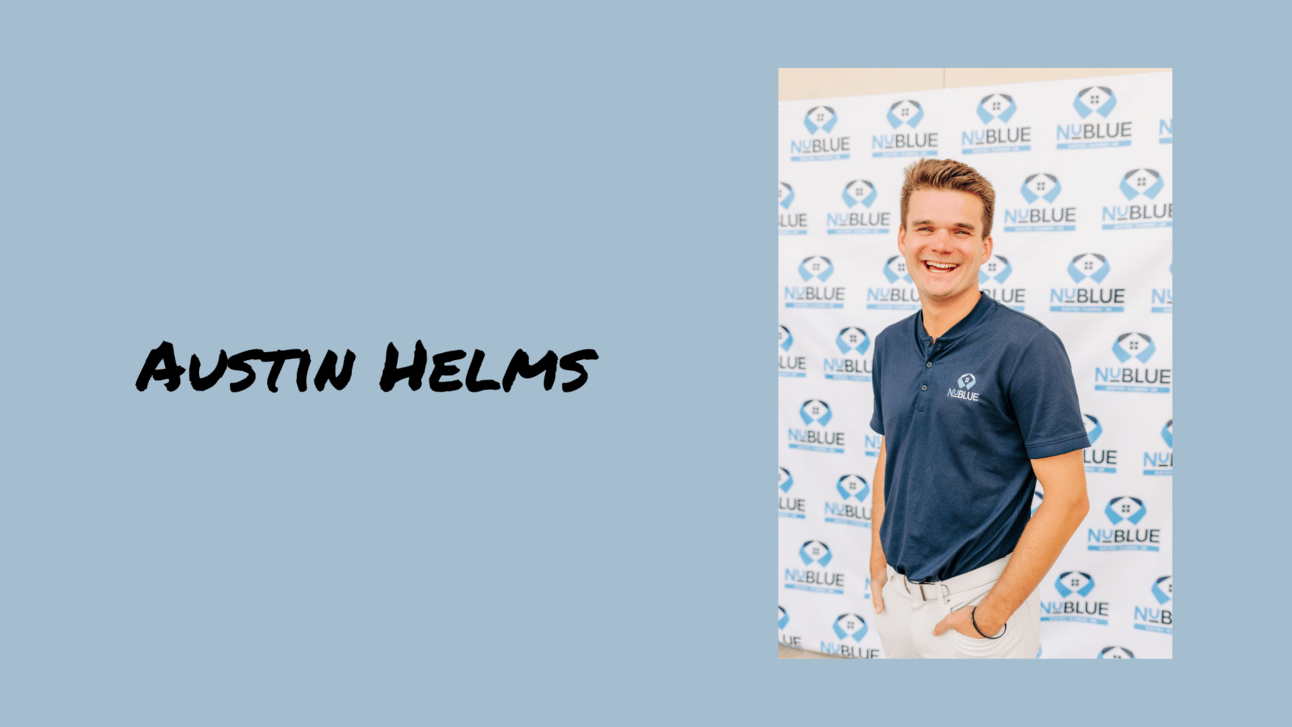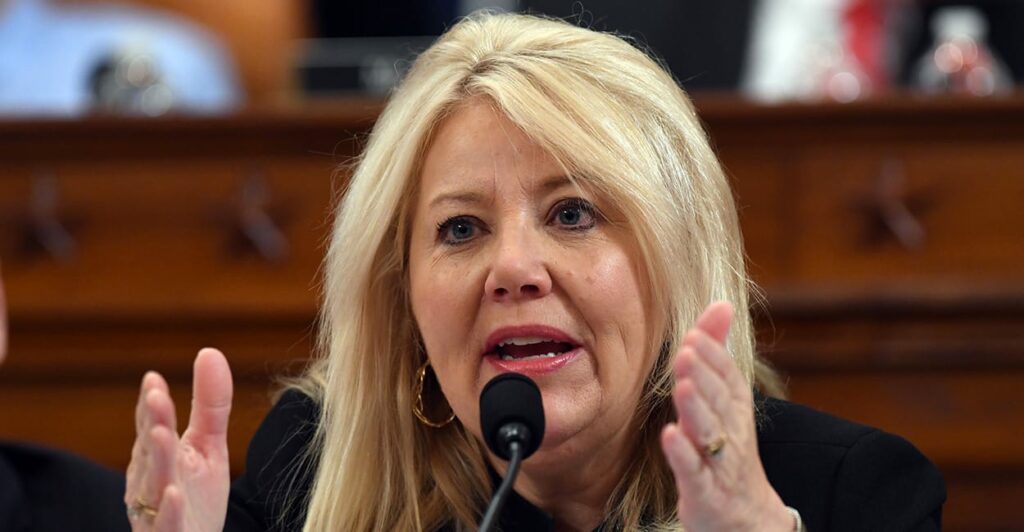Austin Helms on building a perpetual company and hitting $20 million along the way
Notes on growth, retaining talent, and building a perpetual company

❝
Retention is all based on communication and giving guys a pathway.
Austin Helms is a Founding Partner at NuBlue Service Group, an employee-owned, multi-trade service business based in North Carolina.
We talked about growth tactics, retaining talent, making mistakes, and building a perpetual company. Our conversation’s been lightly edited for brevity and clarity.
You recently re-branded to NuBlue Service Group. What’s the story there?
We had three different brands prior — Ease Plumbing, Viva Electric, and Ease Air — but a private equity group owned the trademark to Ease Comfort and we had to change names. The name NuBlue sounds like “the new blue collar,” and that’s kinda what we’re going for. We’re trying to disrupt this stigma of, you know, older owners who just tell people to go out and make them money.
What’s something specific — a tactic, strategy, etc — that’s helped you grow?
It’s one thing: the people. If you don’t have rockstar people, you can’t go spend advertising dollars. We want people who are respected in the trade, and those people come with customers and a great reputation — you just do the advertising as a cherry on top.
We hire people on the Patrick Lencioni “humble, hungry, smart” [concept]. If we find a technician or Market Leader, and they contain two of those, that’s good for us. In an early business, we really want hungry people. We can’t just have a bunch of humble and smart people.
What is a Market Leader?
It’s the person who holds the license when we open a new location.
How do you recruit them?
Those guys are usually your #2 or #3 at a high-performing company. We’ve done it by word of mouth and cool, funny videos, but really by word of mouth. And if you get one good tradesman who’s well respected, they can bring the other two [trades] with them.
Either they don’t have the funding to start their own business or they don’t understand the nuances — accounting, marketing, customer service — or it’s both. Usually, it’s both.
When we build new locations, we usually require a guy to have a #2. Because they can’t go recruit or generate business if they don’t have a #2 — it’s so crucial.
On the flip side, how do you retain talent?
Retention is all based on communication and giving guys a pathway. At the end of the day, they wanna make more money, so we give them a path to do so. Each Market Leader will sit down and say, “Where do you wanna be?”
We incentivize people to go get their licenses and celebrate when they do. We do a culture index and color codes because each person is different — one may want all the glory and one may just want a check.
Do you do any ongoing training or development as part of those pathways?
Yeah, we do annual meetings with all the Market Leaders, we’ve sent some guys to school, and I’ve tutored people to pass the plumbing exam. We’ll do monthly competitions, and take people on an annual fishing trip. And we bring manufacturers in to come train folks.
Getting guys' input holds a lot of weight. And even if you don’t do that [thing they gave input on], people say, “He’s listening to me.” The funny part is when you ask people if they want to be a part of a decision and they don’t even reply. They just want to be heard; you have to let people be heard.
❝
If you find great talent, hire them. Hire slowly, fire faster. Don’t be afraid to let it rip.
From an advertising standpoint, which channels have been the most successful for you?
GLSA has worked a lot, and word of mouth. We have an external relationship guy who speaks at brokerages (real estate places) and generates leads from that. And that’s been a huge hit. We’re almost like a friend to these real estate agents. They have questions, we give them free advice, and then next thing you know, they call you for eight jobs.
We don’t do a lot of mailers. Radio’s worked quite a bit — almost more of a boost than TV. Billboards are terrible. We’re doing an internal campaign right now where we give people bonuses if they bring us leads for new customers — we’re doing a competition around it.
How do you think about pricing, considering the past couple of years and the future?
You saw an uptick in material spend, and labor rates were going up, but I think we’ve kind of settled out. It took a while. It was the Wild West from 2020 to 2022, but it’s calmer. Even if we hit a hiccup in the economy, I think we’ll be okay.
How we price jobs is comparing ourselves to competitors. To me, you look at the top guy in the market and where they’re at. We can’t be that expensive, but we’ll be more expensive than Joe in a truck. We do an assessment every year, and we’re pretty good for right now.
You hit $20 million in four years. What mistakes have you made?
We grew too fast and hired people outside of our core values — we said maybe they’d work out but they didn’t. We rushed hires, blindly threw money at marketing, and didn’t get a trademark when we started.
Then, not getting on software sooner, not negotiating a better rate, and oh, not buying a piece of heavy machinery up front. If you have a vision and know you’re gonna need equipment, you might as well build your balance sheet up and buy that asset. And then not training early enough — we do that now, though.
You’ve said you’re building a perpetual company that won’t be sold. How do you actually make that work?
We reinvest in the future and keep pumping money back into it. You don’t grow that much unless you’re reinvesting money — into people, advertising, etc. We want to build a business that lasts much longer than my lifetime and has a real impact on people’s lives. There’s probably an average of 300 people affected by our company (we have 120 employees/families).
We’re gonna roll out a structure where you can make $28 bucks an hour, or you can make $24 bucks an hour, and the other $4 goes to buy back shares and then you’re getting a dividend check every year until you retire. It’ll probably be like a third, third, third — a third [of the revenue] pays the operating expenses, a third gets reinvested, and a third will be dividends.
Anything else you want to say?
I have a list back here in my office. Here are some things it says:
-
If you find great talent, hire them.
-
Hire slowly, fire faster.
-
Don’t be afraid to let it rip.
-
Employees are our #1 priority; customers are our #2.
-
When they’re not happy, ask them how you can make it right.
-
Shit always hits the fan, it’s about how you clean it up.
-
Life’s too short to be serious.
📬 Get our stories in your inbox
Keep reading
HVAC distributor sales grow in Q1, summer forecast nuanced
HARDI distributors' sales grew five percent a month, on average, during the first quarter, with several factors at play looking ahead
June, July face tough weather comps — but a warm forecast
U.S. cooling demand in June and July 2024 ran above normal levels, though a warm summer forecast may help offset the tough comps
Lesko’s bill gets continued industry support
September 18, 2023


